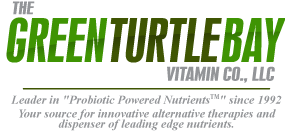|
Boron is a trace mineral found in legumes and some fruit. Boron may be necessary to help prevent bone loss and osteoporosis, possibly by working in conjunction with other bone builders like calcium, magnesium and vitamin D. There’s also evidence that it helps prevent arthritis. Boron is often combined with other minerals in tablets and capsules.
Calcium is a well-known mineral nutrient that plays an important role in a variety of essential bodily functions, including building bones and teeth, transmitting nerve messages, regulating heartbeat, and coagulating blood. The adult RDA is 800-1,200 mg. It is recommended in the treatment or prevention of osteoporosis, heart disease, problems of menopause, and certain cancers. Taken before bed, calcium may have a slight sedating effect. Supplements are derived from a variety of sources, including dolomite, oyster shells, and bone meal. It is also produced in different chemical forms, with calcium citrate and calcium carbonate noted for being highly absorbable. Calcium is often combined with magnesium and other minerals. It is available as tablets, capsules, and liquids. Calcium maintains the acid/alkaline balance of the blood and strengthens bones. Additionally, it helps regulate heartbeat, blood clotting, muscle contraction and nerve conduction.
Chromium is a trace element found in brewer’s yeast, organ meats, whole grains, cheese, and nuts. There is no established RDA. In the body chromium is involved with insulin production and protein synthesis. It works with insulin to promote the metabolism of fats and carbohydrates, including glucose (blood sugar). Chromium Picolinate is important for glucose metabolism and may be a cofactor for insulin. Chromium deficiencies can cause difficulties in regulating blood sugar. Supplementation of 200 mcg daily can benefit some type II (adult-onset) diabetics and people suffering from hypoglycemia. Chromium’s effects on blood sugar can also spill over to affect fat metabolism and blood cholesterol levels. It thus may help prevent heart disease. Chromium is often combined with Cysteine, niacin, and other nutrients to make Glucose Tolerance Factor. It comes in tablets and capsules.
Copper is used in the formation of red blood cells and helps to produce several respiratory enzymes. It is a cofactor in absorbing iron into blood cells.
Germanium is a trace mineral and natural element found in soil and in some foods. The mineral itself appears to have limited effects on human health, but was recently developed by Japanese researchers into a synthetic organic compound (Ge-132 or Ge-Oxy132) with promising medical applications. The organic compound improves oxygenation of tissues and restores normal function of immune boosting cells. It may help prevent cancer, relieve pain, and combat viral infections, as well as improve circulatory and mental symptoms and reduce allergies. It is relatively nontoxic, though the FDA has warned against potential kidney damage from long-term use. Germanium comes in powders, granules, tablets, and capsules.
Iron is a trace element found in meat, poultry, fish, nuts, sunflower and pumpkin seeds, whole grains, and dark green leafy vegetables. The adult RDA is 10-15 mg. Iron aids in energy production and is necessary for proper immune function. It is part of the hemoglobin that helps carry oxygen in the bloodstream to tissues throughout the body. It is used therapeutically to treat fatigue and depression, due both to iron-deficiency anemia and other causes. It has also been shown to benefit certain inner ear dysfunctions and learning disabilities. The body readily stores iron, and too much can be toxic or cause cardiovascular disease. It can also be counter-effective, for instance, by causing fatigue, fostering bacterial growth, or compromising the immune system. Most nutritionists now recommend that iron supplementation be undertaken only if an iron deficiency has been clinically demonstrated. Iron is available in liquid formulas, capsules, and tablets.
Note: Iron has been deliberately omitted from our products due to the concerns from recent heart studies. Many people cannot tolerate iron in a multivitamin supplement. They get an upset stomach when they take a multi-vitamin that includes iron. If iron is required, it should be taken on an empty stomach or with some crackers if necessary. It is best to take iron at a different time from your vitamins as it affects their absorption. Other ingredients in this supplement work with the body to produce red blood cells. Food cooked in iron pots is another good source of iron.
Magnesium is an essential major mineral found primarily in leafy green vegetables, soybeans, and nuts and seeds. The adult RDA is 280-350 mg. Magnesium is required for strong, healthy bones and is concentrated in the body in the bones and teeth. It is important to a variety of other bodily processes: It helps keep cells electrically stable and, with calcium, regulates the body’s energy levels and maintains normal heart function and nerve transmission. Magnesium is a natural laxative aids in muscle relaxation, protein synthesis, and energy production. A magnesium deficiency can cause muscle tremors, convulsions, and possibly psychiatric problems. Supplements are used to treat premenstrual syndrome (PMS), high blood pressure, anxiety, osteoporosis, fatigue, and diabetes. Some therapists use magnesium supplements to treat convulsions in pregnant women. Supplement makers often combine magnesium in a 1:2 ratio with calcium. Magnesium is probably the safest mineral, with no record of toxicity from supplements. It comes in tablets and capsules.
Manganese: It is necessary in the functions of the brain. Additionally, it is required for normal bone growth and development, normal reproduction, and cell function.
Selenium, a trace mineral and powerful antioxidant, is needed by the body in minute amounts. The adult RDA is 50-75 mcg. Selenium works with vitamin E to fight cell damage by oxygen-derived compounds. Selenium is found in fish and in plants that have been grown in selenium-rich soil. High soil levels have been linked to low cancer rates of local people, and low soil levels to higher rates. Selenium may also be beneficial in the prevention of heart disease and immune deficient conditions. It helps protect the body against harm from heavy metals and environmental toxins, and inhibits aging-related processes. It is also used to treat acne and may play a role in the production of sperm. Selenium is potentially toxic in high doses. It comes in tablets and capsules.
Silicon is an essential trace mineral found in plant fiber and hard water. It has only recently begun to gain scientific recognition for its role in the formation of bones, teeth, nails, cartilage, and connective tissue, where the highest levels in the body are found. The FDA has not established and RDA, although it admits “there is substantial evidence” that silicon is essential to health. The mineral can prevent buildup of cholesterol-laden lesions in the heart and may protect against aluminum poisoning. It is found in high concentrations in the herbs horsetail, nettle, and alfalfa. Silicon is toxic if inhaled (as silica dust, a by-product of semiconductor production), but no adverse effects are reported from consuming silicon supplements. It is frequently combined with other nutrients in formulas for hair, skin, and nails. It comes in tablets and capsules.
Zinc is a trace mineral essential for proper wound healing, male sexual potency, immunity, liver detoxification, and numerous other bodily functions. The adult RDA is 12-19 mg. Zinc is naturally high in animal foods, oysters, whole grains, and nuts. Zinc is useful in maintaining taste and smell acuity and normal growth and sexual development. It is important for fetal growth and healing wounds. Its potential therapeutic applications include acne and other skin diseases and injuries, colds, infertility, eye disorders, ulcers, and alcoholism. It is often taken before and after surgical operations to speed recovery. Zinc is frequently combined with copper, selenium, and other minerals and vitamins. It is nontoxic, though dosages of 2 g may cause gastrointestinal irritation and vomiting. It comes in lozenges, tablets, and capsules
|




